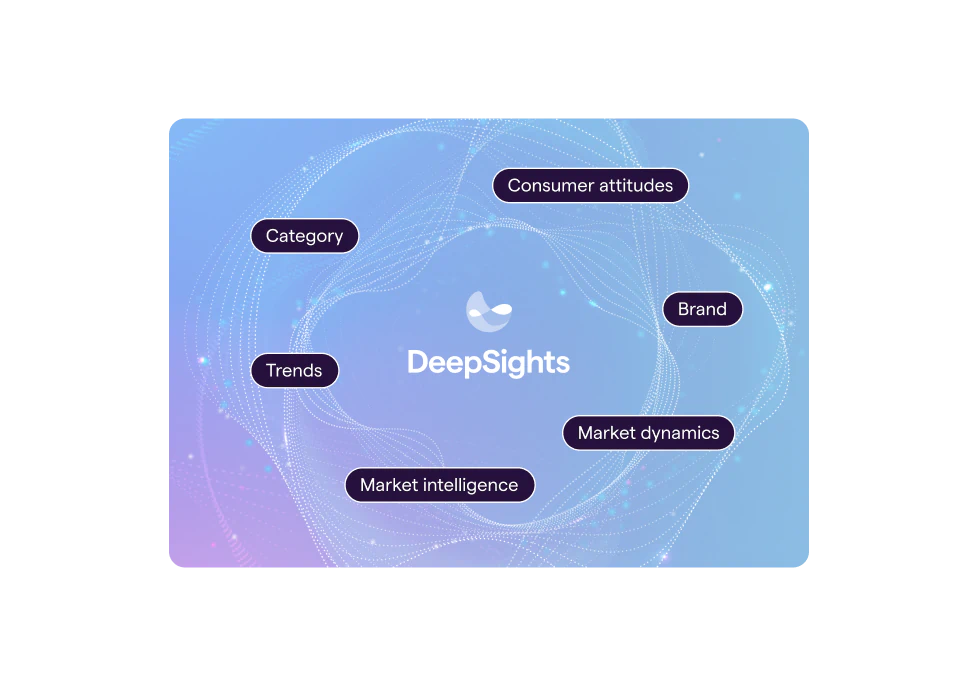What is market intelligence?
Market intelligence is the process of gathering, analyzing, and interpreting data about a market, including information about customers, competitors, trends, and other factors that influence business performance. It involves collecting insights from various sources, such as surveys, industry reports, social media, and competitor activities, to gain a comprehensive understanding of the market environment.
The importance of market intelligence cannot be understated. Businesses use competitive market intelligence to identify opportunities, mitigate risks, and make informed decisions about strategies, product development, pricing, and positioning. Organizations can stay ahead of trends, respond proactively to changes in customer behavior, and maintain a competitive edge. It plays a crucial role in shaping business strategies, ensuring companies align their offerings with market demands.
How market intelligence can transform your business
Market intelligence can be wide ranging; it includes all the data your organization collects about the markets you operate in (or you want to operate in). The data can cover customer demographics, trends, regulations, competitors, or geographic areas, etc. And from that data, your organization derives meaningful insights to help you determine and refine market segments, market penetration, and market opportunities.
Because market research intelligence covers competitive intelligence, product intelligence, and industry intelligence, it grants a holistic view of the market. In turn, enabling you to see the bigger picture, connect the dots, uncover insights, and make better data-driven business decisions.
Seven benefits of market intelligence in business
Let’s take a look at some of the key benefits of market intelligence.
1. Achieve a comprehensive market overview
Having access to market research intelligence at your fingertips and having a clear strategy gives your business a bird’s eye view of your market landscape on an ongoing basis. When you have a bird’s eye view of the market, your business can remain agile in volatile environments, quickly pivoting when needed.
2. Gain a competitive advantage
Gaining a competitive edge is one of the crucial benefits of market intelligence. Competitor intelligence is a type of market intelligence that helps you see how your business measures up against your competition. When you integrate competitor intelligence with your other market intelligence, you can keep an eye on your competitor, improve your offerings and positioning, and penetrate and capture more of your target market.
3. Forecast market trends
With the right market intelligence solutions at your fingertips, your insights and marketing teams can monitor, anticipate, and act on market opportunities before, or at least in time with, upcoming market shifts and impacts. Leading organizations such as the REWE group are using AI to enhance knowledge management, using quickly synthesized reports on patterns and trends in the instant delivery market with their robust market insights platform. Based on access to competitive market intelligence, executives made a sound decision to enter a new market at exactly the right time.
4. Invest in the right projects
When your organization leads with its competitive market intelligence, the business can avoid losses and invest in the right projects. The key is to keep all your knowledge in one place so you can capture the full picture of the market, your customers, and your competitors. That way, the business “knows what it knows” and can quickly validate and invest in new programs, products, and services while avoiding time- and resource-waste.

5. Deepen insights into customer behavior
If your organization wants to increase customer satisfaction, improve customer retention, and meet market demands, market research intelligence is your main ingredient. With a solid, contextualized understanding of your target audience and customer, your business teams can use their deep understanding to make customer-centric decisions.
6. Launch products and services with an iron-clad strategy
The importance of market intelligence on product launches is evident. From idea to prototype to launch, successful and prosperous new products and services have effective market research behind them. In each stage, you know the consumer’s problem and the product is developed with market-driven features. You know where your target customer shops and what media your target customer uses. And when it comes to launch, market insights help you achieve your revenue forecast, grow incremental sales, increase profitability, and optimize your marketing dollars.
7. Optimize operational processes
If you optimize your market intelligence strategy in your organization, you’re guaranteed to see time and money savings. Not only will you start to see savings in the time your employees spend searching for information, but you’ll also know where the gaps in your information are, saving you money and resources stemming from when your organization commissions redundant market research.
Optimize your market intelligence strategy with end-to-end insights software
Now that you understand the importance of market intelligence, you know that the catalyst for successful enterprises is powerful market research intelligence and insights management. AI-powered insights management software helps you connect the dots between all your competitive market intelligence assets, so you can easily communicate impactful insights to relevant stakeholders, to drive winning business decisions across your organization.

Ready to reap the benefits of market intelligence for your organization? Start your journey by exploring AI-powered insights engagement software DeepSights. The platform empowers your insights and analytics teams with market research intelligence. It enables you to capture knowledge, develop insights, and engage your business units for insights-driven decisions. Additionally, learn how to create compelling insight stories to deepen your customer relationship.




